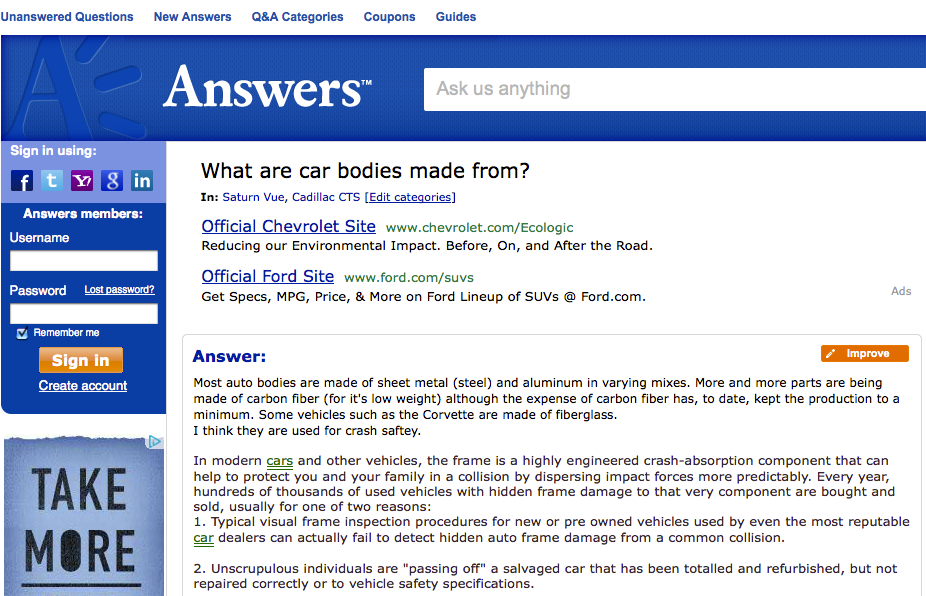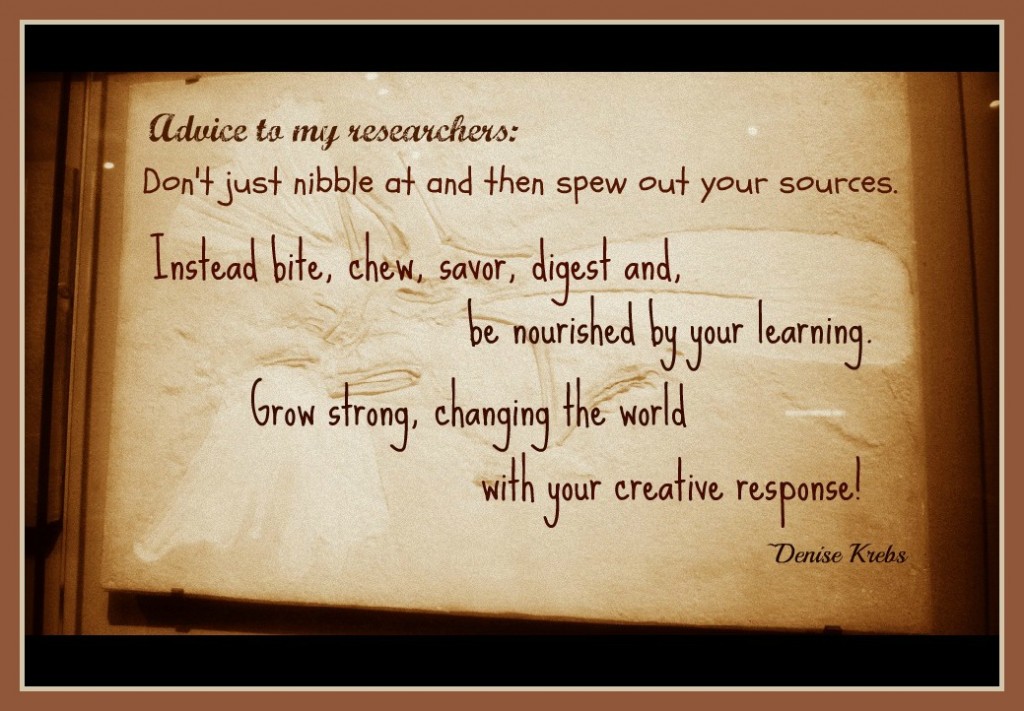Come with me to genius hour last week. Here is the scenario I came upon.
Two students and two computers – one working on an iMovie, one looking up information. On the iMovie, they were adding slides that asked interesting questions about Camaros. When I arrived, the question on the iMovie screen was: What is the Camaro’s body made of?
On the other computer, the “researcher” had typed in this question in a Google search: “What are car bodies made of?” He clicked on the first link and got to this site:

He began reading/summarizing aloud, “Car bodies ‘…are made out of sheet metal (steel)…’ Yep, they are made out of steel.” The iMovie guy began typing.
Hmmm…I saw many things wrong here, and I couldn’t stay quiet very long. When I saw that he didn’t even finish reading the first paragraph, I stepped in. “What else are they made of, according to this source?” I asked, pointing to the screen.
Based on that first paragraph, car bodies could be made of steel, aluminum, a variety of mixtures of those, carbon-fiber, or fiber glass.
I also pointed out the difference in the two questions on the two computers. One asked about Camaros and the other about cars in general. Do you know the answer to your question yet?
I stayed with them awhile, not wanting to stifle their enthusiasm, but I also wanted to see how they chose their sources, and which ones they liked. The way they were searching by question reminded me of the olden days when we used the then cutting-edge “Ask Jeeves” search engine. We would type in a question, and a nice butler would magically send you to the answer. (Now it’s at Ask.com)
Search engines and Q & A sites have continually developed over the past decade. The “answers” they give, as well as the pool of contributors doing the answering, have grown exponentially in that time. Maybe, I thought, I need to teach students a different way of searching than I used in the 90s.
When the Camaro boys typed the question in a Google search, they were given many answers to choose from — with a great range in the quality of the answers. You can see them here: wiki.answers.com, answers.Yahoo.com, and the Q&A Community of Ask.com, and eHow.com
Although it didn’t come up in a search for this question, another site they said they like to use is Answers.com. (Tell me, do people still think Wikipedia is an unreliable source?)
As I finished up with these boys, I was struck with some things I have not been paying enough attention to. I need to directly teach more about researching, especially online. In addition, I took away some more advice to self:
- Teach critical reading. It’s more important now than ever.
- Figure out how I decide if a site is reliable. And how do I teach that to seventh graders?
- Encourage the good questioning that was going on, but help students learn to be unsatisfied with shallow answers plucked out of their reading.
This happened a week ago Wednesday. The same evening I participated in #geniushour chat, where I heard about something new: researcher’s workshop. I didn’t get the details, but I imagined that it was a cross between genius hour and an assigned research paper.
After seeing the Camaro research, and other similar researching events during genius hour and my science and history classes, I need to do more research and find out more about research workshop.
This week, we just finished an experimental version of the researcher’s workshop in history. (I’ll write about my attempt this week in a later post, but before they started I gave them the advice in the picture below.)
How do you teach researching?
Do you have any suggestions for what should be in a researcher’s workshop?
Edited image by mrsdkrebs; original CC image by @sandymillin and #eltpics.
